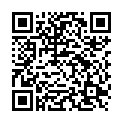|
|
|
| Module code: WIBASc-515 |
|
2V+2PA (4 hours per week) |
|
5 |
| Semester: 5 |
| Mandatory course: yes |
Language of instruction:
German |
Assessment:
Written exam
[updated 02.07.2019]
|
WIBASc-515 Industrial Engineering, Bachelor, ASPO 01.10.2013
, semester 5, mandatory course
|
60 class hours (= 45 clock hours) over a 15-week period.
The total student study time is 150 hours (equivalent to 5 ECTS credits).
There are therefore 105 hours available for class preparation and follow-up work and exam preparation.
|
Recommended prerequisites (modules):
WIBASc145 Physics
WIBASc165 Mathematics I
WIBASc245 Manufacturing Engineering
WIBASc255 Statistics
WIBASc265 Mathematics II
WIBASc345 Design Technology / CAD
WIBASc355 Computer Science / Programming
WIBASc445 Electrical Engineering
[updated 31.12.2019]
|
Recommended as prerequisite for:
WIBASc-525-625-Ing27 Project Work in the Wind Energy Lab
[updated 31.01.2020]
|
Module coordinator:
Prof. Dr. Frank Kneip |
Lecturer:
Prof. Dr. Frank Kneip
[updated 31.12.2019]
|
Learning outcomes:
After successfully completing this module students will:
_ have learned the basics of control engineering for linear, time-invariant control systems.
_ can describe and characterize suitable systems by combining basic transfer functions.
_ have the ability to evaluate a given linear and time-invariant system in terms of stability.
_ be able to select a known controller type for a given system and justify their choice, and
_ be able to apply a tuning procedure for the selected controller and parameterize the controller.
_ be familiar with saturation of control variables and their effects, as well as have insight into the subject of nonlinear systems, feedforward control and iterative learning controllers.
_ have the ability to apply what they have learned in the Matlab/Simulink simulation environment and in connection with Lego Mindstorms NXT and Labview for predefined systems.
[updated 02.07.2019]
|
Module content:
1. Principles of feedforward and feedback control
- Basic principle feedforward and feedback control
- Controllers, controlled systems, sensor and actuator technology
- Areas of application and requirements
2. System description and stability
- Linear time-invariant systems
- Description in the time domain
- Description in the frequency domain
- Basic transfer functions
- Parallel and series connection of transfer functions
- Step response
- Frequency response, root locus, Bode plot
- Stability of linear systems
3. Types of controllers
- Basic types of controllers: P-, I-, PI-, PD-, PID controllers
- Characteristics and areas of application of different types of controllers
4. Controller design
- Objectives of a controller strategy
- Tuning rules:
- Tuning according to Ziegler and Nichols
- Tuning according to Chien, Hrones and Reswick
- Tuning according to the T-Sum Rule
- Pole placement
- Dimensioning with Bode plots
5. Further topics:
- Saturation of control variables, anti-wind-up
- Disturbances and tolerances
- Nonlinear systems
- Feedforward (control)
- Iterative learning controllers
Experiments and simulations:
- Simulation-supported tests in Matlab/Simulink
- Lab experiments with Lego Mindstorms NXT and Labview
[updated 02.07.2019]
|
Teaching methods/Media:
Lecture with integrated exercises and experiments, presentation, lecture notes, blackboard, PC, Matlab/Simulink, Labview, Lego Mindstorms NXT
[updated 02.07.2019]
|
Recommended or required reading:
_ Lunze, J.: Regelungstechnik 1; 9. Auflage, Springer Verlag, 2013
_ Unbehauen, H.: Regelungstechnik 1; 15. Auflage, Vieweg+Teubner Verlag, 2008
_ Reuter, M., Zacher, S.: Regelungstechnik für Ingenieure; 12. Auflage, Vieweg+Teubner Verlag, 2008
_ Tröster, F.: Steuerungs- und Regelungstechnik für Ingenieure; 3. Auflage, Oldenbourg Verlag, 2011
_ Roddeck, W.: Einführung in die Mechatronik; 4. Auflage, Vieweg+Teubner Verlag, 2012
_ Bode, H.: Systeme der Regelungstechnik mit Matlab und Simulink _ Analyse und Simulation; Oldenbourg Verlag, 2010
_ Gasperi, M.: Labview for Lego Mindstorms NXT; National Technology & Science Press, 2008
_ RRZN Handbuch: Matlab/Simulink; 4. Auflage, 2012
[updated 02.07.2019]
|

